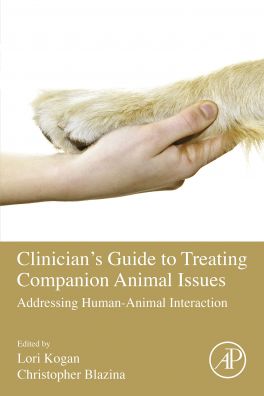Description
Clinician’s Guide to Treating Animal Companion Issues: Addressing Human-Animal Interaction is the first of its kind—a groundbreaking resource for mental health professionals who want the knowledge, skills and awareness to successfully work with pet-owning clients. The book trains clinicians across multiple disciplines to feel more comfortable and confident addressing companion-related issues—both when those issues are the primary reason for seeking therapy or a critical component in better understanding client needs. The book uses current human-animal interactions theories as a foundation to explore pet-related issues utilizing behavioral, cognitive behavioral, family systems, humanistic and contemporary psychodynamic therapeutic orientations.
Users will find sections on the many issues that arise during the lifespan of pet owners (e.g., children, young adults, elderly), as well as issues pertinent to specific populations (e.g., men, homeless, ethnically diverse). Additional topics include the violence link, pet death and bereavement, and behavioral issues. As the first book to approach human-animal interactions (HAI) from a multi-theoretical perspective, it helps clinicians appropriately acknowledge and incorporate relevant HAI issues within therapy to achieve goals.
- Provides practical information for immediate use in practice
- Focuses on common issues relating to companion animals
- Addresses bereavement, attachment, behavior, and more
- Includes interactive readings, case studies and therapeutic exercises
- Contains multiple theoretical orientations (behavioral, cognitive behavioral, family systems, humanistic and psychodynamic approaches)

